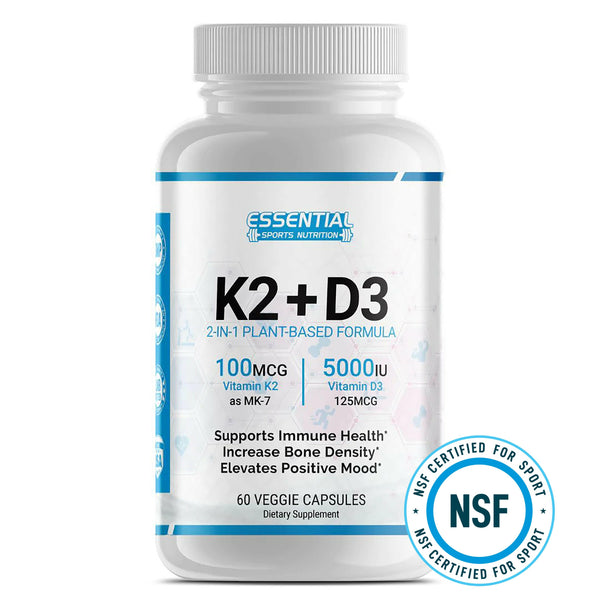Are you pregnant or planning to become pregnant? Pregnancy is a beautiful journey, but it can also be overwhelming. One common concern for expectant mothers is making sure they get the right nutrients for their baby's growth and their own health.
Many women wonder if they're eating well enough and what supplements they should take.
Did you know that taking prenatal vitamins can fill in those nutritional gaps and support a healthy pregnancy? For example, folic acid in prenatal vitamins reduces the risk of serious birth defects like spina bifida by up to 70%.
This guide will cover everything you need to know about the benefits of prenatal vitamins during pregnancy. We'll explain which essential nutrients are included, how they help both mother and baby, when to start taking them, and how to choose the best ones for your needs.

Key Takeaways
- Prenatal vitamins fill nutritional gaps during pregnancy: They provide essential nutrients like folic acid, iron, calcium, and vitamin D that support both the mother's and baby's health. Folic acid in particular can reduce the risk of birth defects by up to 70%.
- Start early for best results: Begin taking prenatal vitamins at least one month before trying to conceive. This preparation helps prevent neural tube defects and supports early fetal development.
- Reduced risk of complications: Regular intake of prenatal vitamins lowers the chances of conditions such as anemia, preeclampsia, hypertension, cleft lip/palate, and certain heart defects.
- Supports overall maternal wellness: Essential nutrients like iron help prevent extreme fatigue by combating iron-deficiency anemia. Calcium helps maintain proper blood pressure levels, reducing risks associated with gestational diabetes.
-
Choosing the right supplement is key: Look for vitamins with at least 400 micrograms of folic acid along with sufficient amounts of other vital nutrients. Consult a healthcare provider to ensure you pick a suitable option tailored to your needs.
Essential Nutrients in Prenatal Vitamins
Prenatal vitamins contain key nutrients essential for a healthy pregnancy. These vital elements ensure both the mother and baby get necessary support.
Folic Acid
Folic acid is vital during pregnancy. It reduces the risk of spina bifida and neural tube defects by up to 70%. Pregnant women should take at least 400-800 micrograms every day. This nutrient may also lower the chance of cleft lip, cleft palate, and some heart defects.
Starting prenatal vitamins a month before trying to conceive helps prevent major brain and spine birth defects in babies. Taking too much folic acid can increase symptoms of B12 deficiency, so it's important not to exceed recommended doses.
Early intake supports a healthy pregnancy from the beginning.
Iron
Iron is crucial during pregnancy. Pregnant women need 27 milligrams of iron each day. This helps support placenta and baby development. Iron in prenatal vitamins can prevent iron-deficiency anemia, which causes extreme fatigue.
Iron also protects the child’s health. It reduces the risk of pre-term delivery, low birth weight, and infant mortality. But too much iron may cause constipation and nausea. Manage this with a high-fiber diet, more water intake, exercise, and stool softeners.
Calcium
Calcium is vital for the baby's bone development during pregnancy. Prenatal vitamins should include the recommended daily allowance of calcium to support this growth. Calcium also helps prevent preeclampsia and hypertension in mothers, which are serious conditions that can affect both mother and baby.
Pregnant women need enough calcium to maintain their own bone health. Without adequate intake, there’s a risk of losing bone density. Ensuring prenatal supplements include sufficient calcium is essential for keeping bones strong during pregnancy.
This mineral supports not just baby’s needs but also maternal well-being throughout the gestation period.
Vitamin D
Vitamin D is crucial during pregnancy. It helps the body absorb calcium, which builds strong bones for both mom and baby. Prenatal vitamins with Vitamin D prevent rickets, abnormal bone growth, and delayed development in babies.
A lack of Vitamin D can lead to serious issues like preeclampsia and gestational diabetes. Pregnant women need enough Vitamin D daily to support their immune system and overall health.
Make sure your prenatal vitamin has the right amount for you and your baby’s needs.
Health Benefits During Pregnancy

Prenatal vitamins can help support the baby's growth and development. They may reduce the risk of birth defects. These vitamins also boost the mother's health.
Read more to find out when to start taking prenatal vitamins!
Supports fetal development
Folic acid is vital for a baby's brain and spinal cord. It helps prevent major birth defects such as anencephaly and spina bifida. Health experts recommend taking folic acid supplements during pregnancy to ensure the baby gets enough of this essential nutrient.
Iron supports red blood cell production, which carries oxygen to the developing fetus. Pregnant women need more iron to help their bodies make extra blood for both them and their babies.
This can reduce risks like anemia in mothers and low birth weight in infants.
Calcium is crucial too. It helps build strong bones and teeth for babies while preventing preeclampsia and hypertension in pregnant women. Vitamin D works closely with calcium by aiding absorption, promoting healthy bone development, and preventing rickets later on.
Reduces risk of birth defects
Prenatal vitamins are crucial for a healthy pregnancy. Taking them reduces the risk of birth defects such as spina bifida and neural tube defects by up to 70%. They also help lower the chances of cleft lip, cleft palate, and certain heart problems in babies.
Folic acid is a key nutrient in these vitamins. Start taking folic acid at least one month before trying to get pregnant. It ensures that you have enough nutrients for early development.
This simple step can make a big difference in your baby’s health.
Enhances maternal health
Prenatal vitamins help maintain the mother's health during pregnancy. Vitamins like iron prevent iron-deficiency anemia, which can cause extreme fatigue. Calcium aids in preventing preeclampsia and hypertension by ensuring proper blood pressure levels.
Vital minerals and nutrients like Vitamin D support overall wellness, reducing the risks of gestational diabetes.
Adequate intake of these essential nutrients supports a healthy pregnancy journey for both mother and baby. A prenatal vitamin should ideally be taken before conception to prepare the body with necessary nutrition.
Discussing options with a healthcare provider ensures optimal benefits from these supplements for maternal health.
When to Start Taking Prenatal Vitamins
Start taking a prenatal vitamin at least one month before trying to get pregnant. This early start helps prevent birth defects, especially neural tube defects. Folic acid is crucial in the first few weeks of pregnancy for healthy fetal development.
Continue taking your prenatal vitamins throughout the entire pregnancy and while breastfeeding. These supplements provide essential vitamins and minerals needed during this time. It's important to choose a prenatal vitamin that contains folic acid, iron, calcium, and other nutrients vital for both you and your baby’s health.
Choosing the Right Prenatal Vitamin

Choosing the right prenatal vitamin can make a big difference during pregnancy. Look for vitamins with key nutrients like folic acid, iron, calcium, vitamin D, and iodine. These help in fetal development and maternal health.
An essential amount of folic acid prevents neural tube defects in babies. Iron supports blood cell production for both mother and baby.
Check the label to ensure no corn, eggs, or wheat if you have allergies. Some prenatal vitamins might cause nausea because they are large pills. If swallowing is hard, try smaller tablets taken twice a day or opt for chewable or liquid forms.
Always confirm that the vitamins are within their expiration date and checked by third-party testers for quality assurance.
The best prenatal vitamins should contain at least 400 micrograms of folic acid and enough levels of other important nutrients like vitamin B12 and zinc. Consider consulting your healthcare provider before making any choices to find what fits best with your health needs during pregnancy.
Conclusion

Prenatal vitamins are crucial for both mother and baby. They provide essential nutrients like folic acid, iron, calcium, and vitamin D. These vitamins help support fetal development and reduce risks of birth defects.
Mothers also benefit by preventing conditions such as anemia and preeclampsia. Early intake ensures better overall health during pregnancy. Start taking prenatal vitamins even if you’re planning to become pregnant soon.
Benefits of Prenatal Vitamins FAQs
Q: What are prenatal vitamins and why are they important during pregnancy?
A: Prenatal vitamins are supplements that provide essential vitamins and minerals needed during pregnancy. They help ensure a healthy pregnancy and support the baby's development.
Q: When should I start taking prenatal vitamins?
A: You should begin taking prenatal vitamins as soon as you plan to become pregnant or find out you're pregnant. It's best to continue taking them throughout your pregnancy.
Q: Can prenatal vitamins help prevent complications during pregnancy?
A: Yes, taking a daily prenatal vitamin can help prevent certain complications like pre-eclampsia, iron deficiency, and neural tube defects such as cleft lip and palate.
Q: Are there any side effects of taking prenatal vitamins?
A: Some women may experience mild side effects like nausea or constipation when they take a folic acid supplement or other synthetic vitamins in their prenatal pills.
Q: Do I need a prescription for prenatal vitamins?
A: Prenatal vitamins are available over-the-counter, but some health care providers may recommend specific prescription prenatals based on individual needs.
Q: What nutrients should I look for in a good prenatal vitamin?
A: A good type of prenatal vitamin includes folic acid, iron, calcium, omega-3 fatty acids (like DHA), B12, choline, magnesium; all vital for the baby’s nervous system development and overall health.
Q: What are the benefits of taking prenatal vitamins during pregnancy?
A: Prenatal vitamins provide essential nutrients like folic acid, iron, and calcium crucial for the health of both the mother and the developing baby.
Q: When should I start taking a prenatal vitamin?
A: It is recommended to start taking prenatal vitamins as soon as you start planning to become pregnant.
Q: Is it necessary to get a prescription for prenatal vitamins?
A: While some prenatal vitamins are available over the counter, it's always a good idea to consult with your healthcare provider for personalized recommendations.
Q: Are prenatal vitamins safe to take before becoming pregnant?
A: Yes, it is safe and beneficial to start taking prenatal vitamins even before you become pregnant to ensure your body has all the necessary nutrients for a healthy pregnancy.
Q: What nutrients should I look for in a prenatal vitamin?
A: A good prenatal vitamin should include folic acid, iron, calcium, and other essential vitamins and minerals important for a healthy pregnancy.
Q: Can I continue taking prenatal vitamins after giving birth?
A: Yes, it is often recommended to continue taking prenatal vitamins while breastfeeding to support your body's nutritional needs during this time.
Q: How do prenatal vitamins help prevent pregnancy complications?
A: Prenatal vitamins help reduce the risk of neural tube defects and other complications by ensuring the mother has adequate levels of crucial nutrients.























